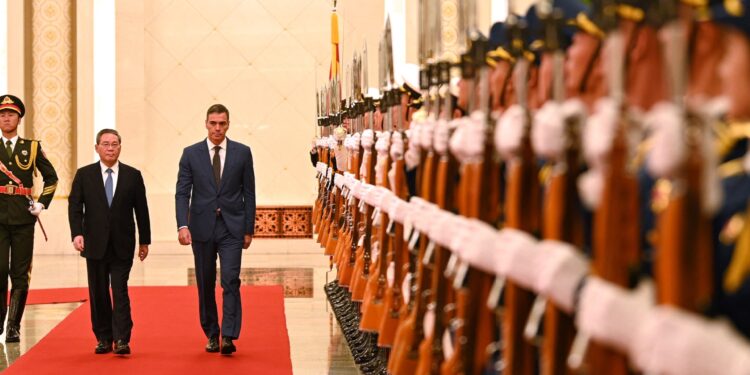Spanish Prime Minister Pedro Sanchez has called for a re-evaluation of the European Union’s plan to impose additional tariffs on electric cars made in China.
The call comes at the end of a four-day official visit to China, where he met with Chinese President Xi Jinping, drawing attention to growing internal divisions among EU member states on the issue, Bloomberg reported.
Sanchez’s call comes as the EU prepares to impose tariffs of 36.3% on SAIC Motor Corp, 19.3% on Volvo Car AB and 17% on BYD, on top of the 10% basic tariff already imposed on Chinese car exports to Europe. Tesla also faces an 8% tariff increase.
If European leaders are unable to muster sufficient opposition to the measures, the European Commission is expected to issue final regulations by October 30, which will remain in force for five years.
The tariffs reflect European concerns that China is using government support to flood European markets with electric cars, threatening fair competition and putting European manufacturers at risk of bankruptcy, according to Bloomberg.
In return, China has launched counter-investigations into anti-dumping practices on EU imports of products such as brandy, dairy products and pork.
Spain between a rock and a hard place
Spain is one of the European countries most affected by this potential trade war, as it is the largest exporter of pork in Europe, and it is also the second largest car manufacturer in the European Union.
Spain is also seeking Chinese investment to develop its electric vehicle sector, and Sanchez’s visit to China is part of efforts to avoid a trade escalation with Beijing, according to Bloomberg.
“We don’t need another war, in this case a trade war,” Sanchez said in his remarks. “I think we have to build bridges between the European Union and China, and what Spain will do is work to find constructive solutions and try to reach a compromise between China and the European Commission.”
European divisions
Sanchez’s comments come at a time when Europe is suffering from internal divisions over how to deal with trade challenges coming from China.
While countries like France, led by President Emmanuel Macron, support imposing tariffs to protect European manufacturers from “unfair” Chinese competition, others like Spain are calling for dialogue and avoiding escalation.
China is trying to exploit these divisions to its advantage, aiming to convince enough European countries that these tariffs are not in Europe’s interest.
China aims to put pressure on European governments by threatening trade retaliation, generating “economic pain” that could push these countries to back away from supporting the tariffs.
Chinese-Spanish cooperation
In a meeting with Sanchez, Chinese President Xi Jinping stressed his desire to strengthen relations with Spain, especially in the fields of high-tech and new energy. “We hope that Spain will continue to provide a fair, safe and non-discriminatory business environment for Chinese companies investing and operating in Spain,” Xi said.
These statements come in the context of China’s desire to avoid escalating the trade dispute with Europe, and to try to build partnerships with countries such as Spain, which may be more inclined towards dialogue and cooperation rather than imposing new trade restrictions.
Spain’s changing position, according to Bloomberg, represents a major challenge for the European Union, which is trying to strike a balance between protecting its local manufacturers and avoiding a full-scale trade war with China.
Bloomberg notes that if countries like Spain can muster enough support, the EU may be able to ease or postpone measures, giving room for dialogue between the two sides.
Although China aims to minimize the impact of tariffs, the EU’s strategy aims to protect domestic markets from large inflows of Chinese government-backed electric vehicles.
The European Union faces a complex dilemma: should it continue escalation to protect its domestic economy, or should it seek a compromise to avoid a full-scale trade war that could harm its economic interests?
With trade tensions between the European Union and China escalating, the question remains whether EU countries will be able to reach a compromise that protects European economic interests while avoiding escalation with China.
Spain remains central to this debate, seeking to balance its economic interests with international relations.



